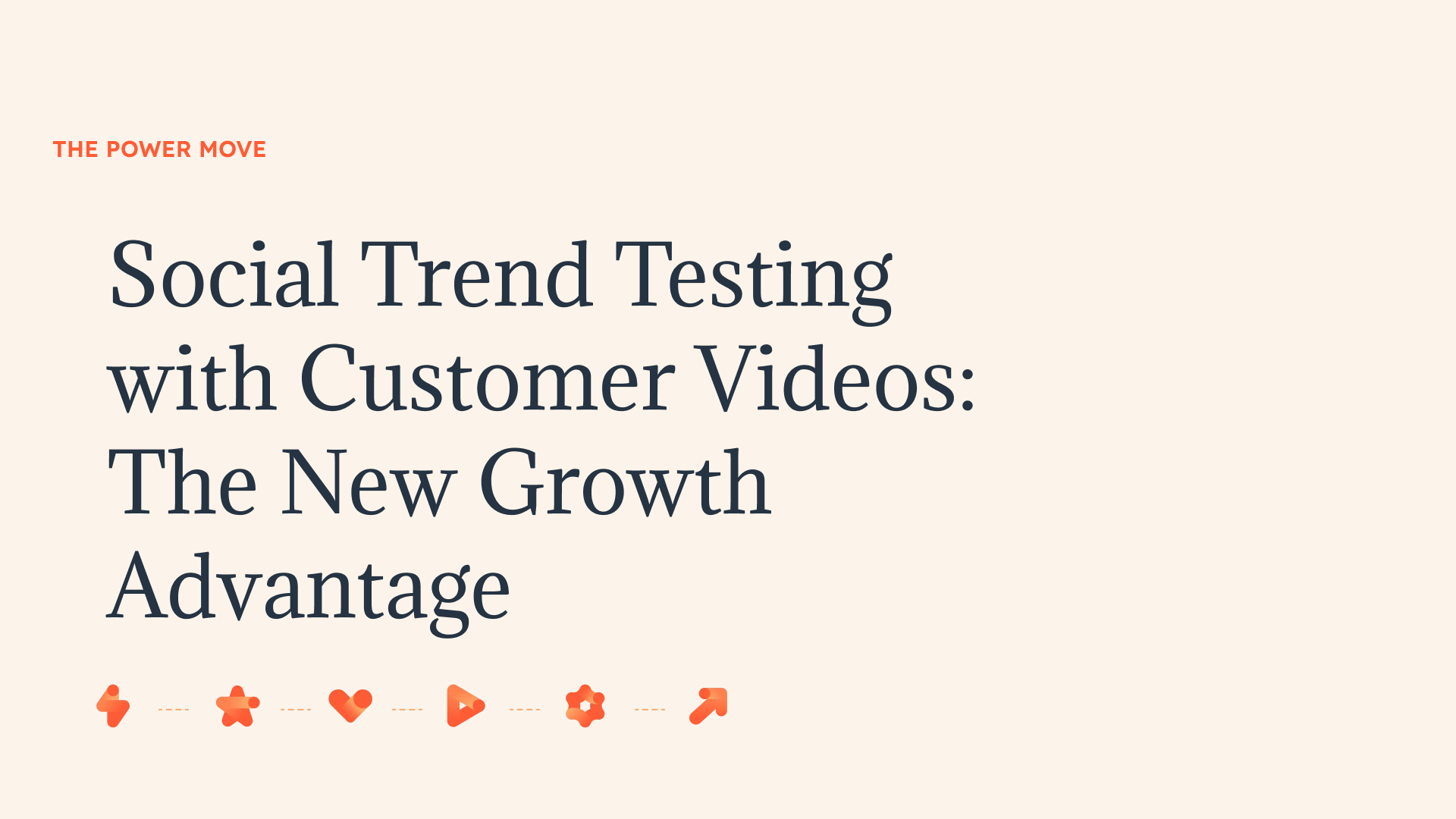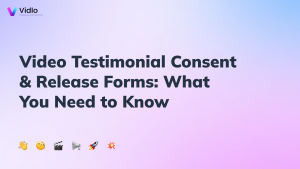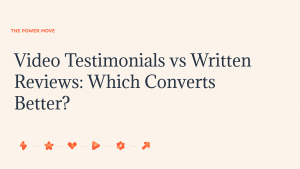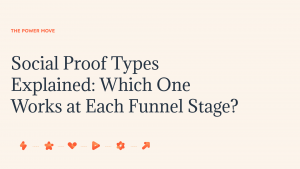Brands today live in a world where culture moves at the speed of a swipe. A single sound, meme, or format can dominate feeds one week and disappear the next. With audiences becoming more selective and algorithms increasingly unpredictable, creative teams can’t rely on instinct alone—they need real, emotional validation from the people they’re trying to reach.
This is why trend testing has shifted from a “nice to have” to a strategic necessity. Before spending on creators, ad creative, or paid campaigns, brands want clarity: Will this trend land? Does it feel authentic for our audience? Does it fit the brand voice? Text surveys and internal brainstorms can’t answer those questions with depth. But customer video reactions can—instantly.
As video emerges as the most honest form of feedback, companies are using these clips not just to test concepts but to forecast cultural fit, refine creative direction, and choose the trends worth betting on. This article breaks down why video-led trend testing is becoming the new competitive edge in 2025.
Why Trend Testing Has Become Essential for Modern Brands
In today’s culture economy, trends move quickly—and the cost of choosing the wrong one is higher than ever. Creative teams need validation before investing in content that may never resonate. Trend testing helps brands understand where culture is heading, how different audiences react, and whether a trend aligns with long-term brand perception.
The Risks of Joining the Wrong Trend
Wasted ad spend
Misaligned brand perception
Low engagement and poor algorithm performance
Trend fatigue among audiences
The Shift Toward Real-Time Consumer Validation
Faster content cycles demand quicker creative decision-making
Authenticity is now the main currency on social
Shorter approval processes require early, emotional clarity from real viewers
How Customer Videos Transform Social Trend Testing
Before committing to a trend, brands want to know how people actually react—not how they say they might react. Customer videos provide immediate emotional feedback that text or surveys cannot match. They show hesitation, excitement, confusion, or delight in real time, giving teams the context they need to choose the right creative direction.
Real-time emotional reactions to sounds, memes, or formats
Natural, authentic user responses that highlight cultural fit
Higher accuracy than written opinions or predictive surveys
Faster decision-making for brand, social, and creative teams
Practical Use Cases: When Video Feedback Helps Predict Trend Success
Video reactions are especially powerful when creative teams want to test cultural fit, generational differences, or early-stage concepts before they go live. Rather than guessing, they can validate trends directly with their audience.
Examples where video feedback wins:
Testing potential TikTok/Reels content formats
Checking which sounds, hooks, or memes resonate
Validating UGC concepts before briefing creators
Gauging brand fit for emerging trends
Understanding generational differences in reaction to a viral format
How Brands Turn Video Reactions Into Actionable Direction
Thematic tagging and sentiment scoring to identify patterns
Highlight reels to align creative and leadership teams
Rapid cross-team alignment through visual insights
Trend scoring or forecasting based on emotional reactions
The Growth Advantage: Why Video-Led Trend Testing Wins in 2025
Video-led trend testing gives brands something invaluable: confidence. Instead of guessing which trends to join, teams can predict performance with clarity and emotional accuracy. This lets them move faster, create smarter, and deliver content that resonates deeply with their audience.
Lower creative risk
Higher campaign efficiency
Better UGC performance
Stronger cultural and audience resonance
Improved ROI on social content and paid media
FAQ
1. What is social trend testing and why do brands need it?
Social trend testing is the process of validating trending sounds, formats, ideas, or memes with real audiences before a brand invests time or money into them. Because trends move quickly, brands need to ensure the trend aligns with their audience and their identity. Without testing, teams risk wasting budget on ideas that fall flat. Trend testing reduces creative risk while improving cultural alignment. It helps brands join trends with intention—not randomness.
2. How do customer videos help validate social trends more accurately?
Customer videos provide emotional context that surveys can’t capture. Viewers’ facial expressions, tone, and initial reactions reveal whether a trend feels exciting, confusing, or off-brand. These micro-signals make it easier to understand true sentiment. Video reactions also eliminate the “politeness bias” common in written feedback. As a result, creative teams can make decisions rooted in real human emotion, not assumptions.
3. Which types of trends can be tested using audience video feedback?
Brands can test almost any social trend—sounds, memes, filters, visual formats, editing styles, UGC scripts, and more. This includes emerging TikTok effects, new Reels transitions, or even conversation topics gaining cultural traction. Video feedback is effective for both broad trends and niche micro-trends. It helps brands understand not just popularity but relevance.
4. How fast can brands collect trend validation insights through video?
With modern UGC tools, brands can collect video reactions in minutes or hours—not weeks. Participants record from their mobile device using a link or QR code, and responses appear instantly in a central dashboard. AI transcription and tagging speed up analysis even further. This rapid cycle enables creative teams to validate trends and launch content while it’s still relevant.
5. Can video-based trend testing improve UGC and influencer performance?
Absolutely. When brands validate trend ideas with real audience reactions, they give creators stronger direction and higher-probability concepts. This results in more authentic content, better hooks, and formats that resonate immediately. Influencers benefit from clearer briefs; brands benefit from more culturally relevant output. The end result is stronger engagement and improved ROI across UGC and influencer campaigns.




